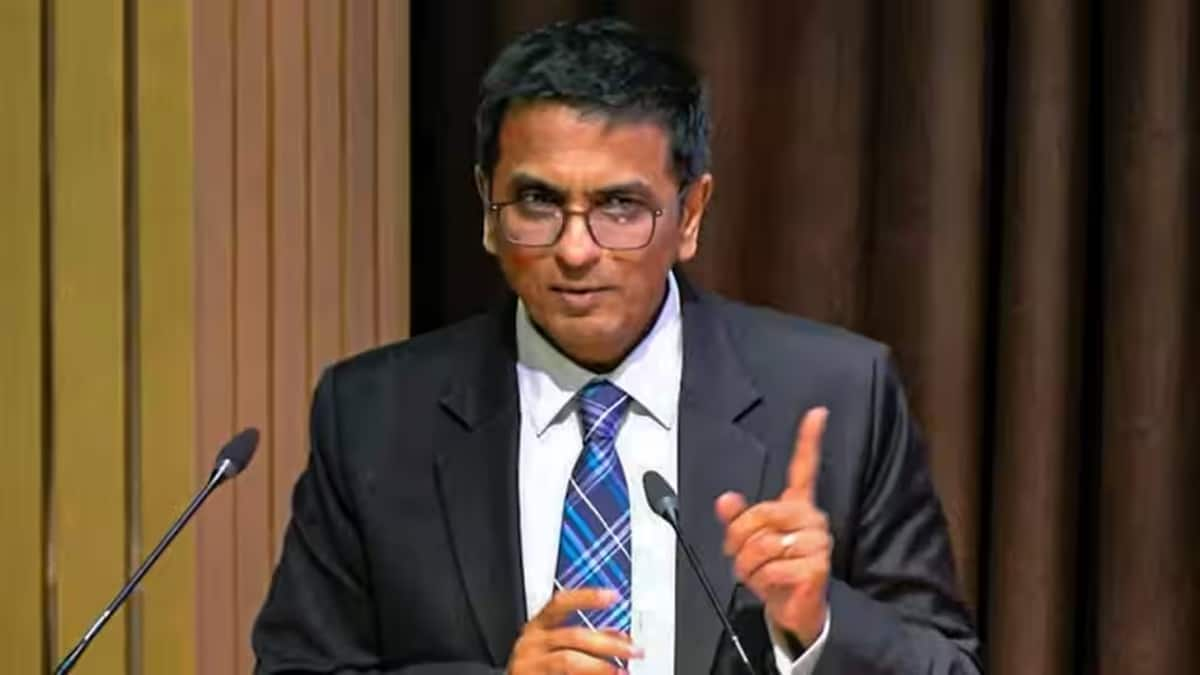Chief Justice of India (CJI) DY Chandrachud on Monday, while speaking at the 3rd Comparative Constitutional Law discussion on ‘Perspectives from the Supreme Courts of India and the United States’ hosted by Georgetown University in Washington DC, stated that judgments rendered on Constitutional issues are many times a vote of conscience and that he stands by his minority judgment in the same-sex marriage case.
He expressed his unwavering commitment to his minority judgment in the recent same-sex marriage ruling by the Supreme Court. “Sometimes it is a matter of conscience and a matter of the constitution, and I stand by what I said,” he stated, according to a Bar and Bench report.
He mentioned that, out of all the Constitution Bench judgments rendered by the Supreme Court of India from its inception in 1950 to date, there have been only thirteen instances where the CJI was in the minority.
“I was in the minority in the case where I held that queer couples can adopt if they are together, but three of my colleagues differed, arguing that not allowing queer couples to adopt was discriminatory. However, they believed it should be for the Parliament to decide,” the CJI explained his judgment.
Also Read:Marriage equality: A parliamentary prerogative
He also explained how the top court’s 2018 decision to decriminalize consensual homosexual sex had led to petitions to recognize same-sex marriage.
“In 2018, we reversed a judgment of the Supreme Court where we decriminalized consensual homosexual relations. This was not the end of LGBTQIA+ rights. We then had petitions for same-sex marriage recognition under the secular law of the Special Marriage Act (SMA). The SMA spoke about prohibited degrees of relation and was for a man and a woman,” he said.
Also Read:Over to the State: Parliament must step in and frame a new law on legalising same-sex marriage
“One of the key questions was whether the court has the jurisdiction to enter into this domain. The court unanimously decided that while we have made significant progress by recognizing queer individuals as equal participants in society and legislating on it, it falls within the role of parliament. By judicial fiat, we cannot enter this domain, which touches on matters like succession and inheritance. However, where I found myself in the minority was in recognizing civil unions. We held that the conscious and subconscious was larger than religion. Three of my colleagues felt that the right to form unions also falls within the role of parliament,” he elaborated.
The five-member bench unanimously agreed that amending laws to establish marriage equality should be the responsibility of Parliament. However, there was a difference of opinion among the judges when it came to matters of civil unions and adoption rights. While the Chief Justice of India (CJI) and Justice SK Kaul were in favor of recognizing same-sex unions, the other three judges on the bench held differing views.
On October 17, the Supreme Court issued a verdict denying legal recognition to same-sex marriages in the country. In a unanimous ruling by the five-judge constitution bench, it was stated that there is no fundamental right to marry.
The top court clarified that the decision on legislating for same-sex marriage has been deferred to the Parliament.

Leave a Reply